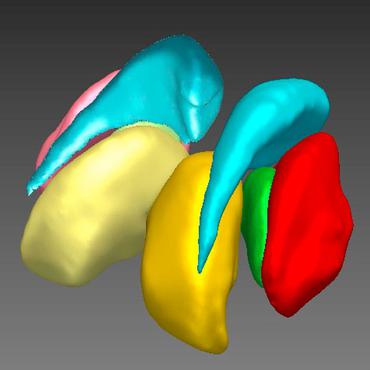Brain-ID: Learning Contrast-agnostic Anatomical Representations for Brain Imaging
Recent learning-based approaches have made astonishing advances in calibrated medical imaging like computerized tomography (CT), yet they struggle to generalize in uncalibrated modalities -- notably magnetic resonance (MR) imaging, where performance is highly sensitive to the differences in MR contrast, resolution, and orientation. This prevents broad applicability to diverse real-world clinical protocols. We introduce Brain-ID, an anatomical representation learning model for brain imaging. With the proposed "mild-to-severe" intra-subject generation, Brain-ID is robust to the subject-specific brain anatomy regardless of the appearance of acquired images (e.g., contrast, deformation, resolution, artifacts). Trained entirely on synthetic data, Brain-ID readily adapts to various downstream tasks through only one layer. We present new metrics to validate the intra- and inter-subject robustness of Brain-ID features, and evaluate their performance on four downstream applications, covering contrast-independent (anatomy reconstruction/contrast synthesis, brain segmentation), and contrast-dependent (super-resolution, bias field estimation) tasks. Extensive experiments on six public datasets demonstrate that Brain-ID achieves state-of-the-art performance in all tasks on different MRI modalities and CT, and more importantly, preserves its performance on low-resolution and small datasets. Code is available at https://github.com/peirong26/Brain-ID.
PDF Abstract




